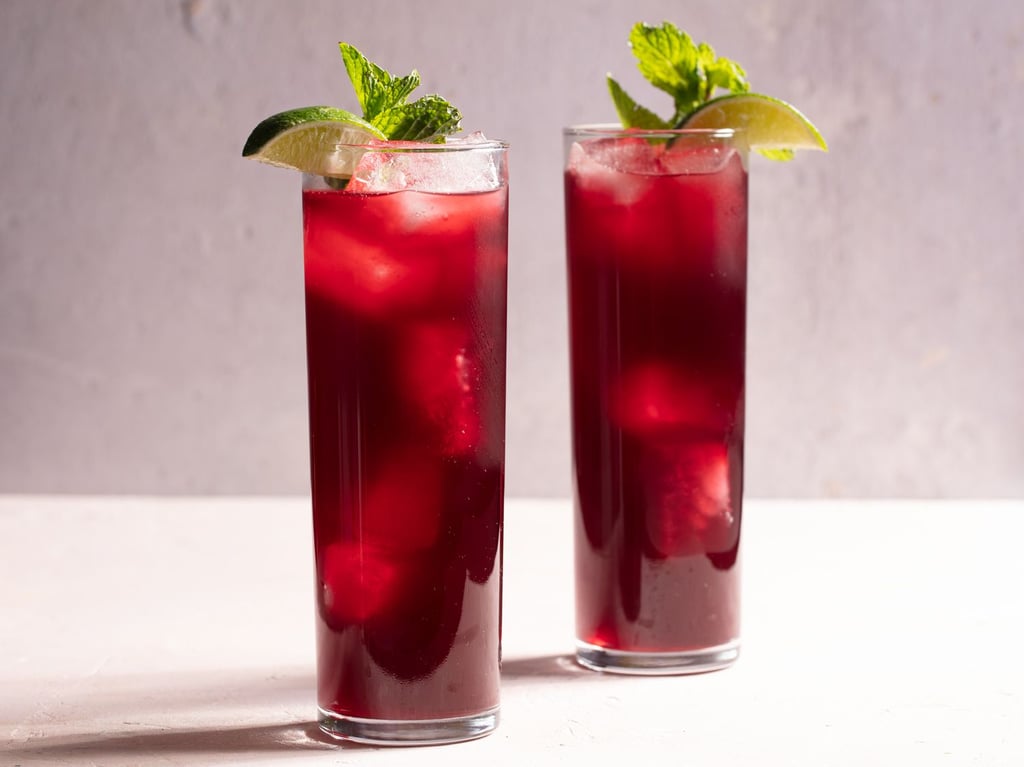CURIOSITY solved
Hibiscus water benefits, recipe, comparison
Hibiscus water, made by steeping dried petals, offers antioxidant-rich benefits for cardiovascular health, weight management, detoxification, skin/hair, and mental calmness. Be mindful of potential side effects like blood pressure sensitivity, and medication interactions, especially during pregnancy
HEALTH
7/29/20253 min read


Hibiscus Water: Benefits, Drawbacks, and a Balanced Conclusion
🌺 Hibiscus Water Benefits: A Floral Elixir for Mind & Body
Hibiscus water, made from steeping hibiscus petals in water, is more than just a refreshing beverage—it’s a vibrant, ruby-red powerhouse of health. Often consumed as hibiscus tea, this botanical infusion has gained popularity worldwide for its incredible range of benefits.
🔬 1. Packed with Antioxidants
Hibiscus petals are rich in anthocyanins—plant compounds that give them their deep color and fight free radicals in the body.
Helps reduce oxidative stress
Supports healthy aging
Boosts immune function
A study in Food & Function found hibiscus extract significantly reduced oxidative markers in rats and improved antioxidant levels.
A scoping review in Nutrition and Food Technology highlighted hibiscus’s antioxidant profile and its role in reducing oxidative stress, inflammation, and insulin resistance.
💖 2. Supports Heart Health
One of the standout features of hibiscus water is its ability to regulate blood pressure.
May help lower systolic and diastolic blood pressure
Can reduce LDL (bad) cholesterol and increase HDL (good) cholesterol
Promotes better circulation
A 2022 meta-analysis in Nutrition Reviews concluded that hibiscus significantly reduced systolic blood pressure by 7.1 mmHg and LDL cholesterol by 6.76 mg/dL.
A clinical trial in The Journal of Nutrition showed that drinking hibiscus tea daily lowered blood pressure in prehypertensive adults.
⚖️ 3. Aids in Weight Management
Hibiscus can help maintain a healthy weight through its metabolism-enhancing properties.
Contains compounds that inhibit amylase, slowing carb absorption
May reduce fat accumulation
Promotes satiety when consumed before meals
A clinical trial in Nutrition found that hibiscus extract reduced body weight, BMI, and waist-to-hip ratio over 12 weeks.
A review in Molecules highlighted hibiscus’s ability to inhibit fat cell formation and suppress adipogenesis via the PPARγ pathway.
🌿 4. Natural Detoxification
It’s not just delicious—hibiscus water supports your body’s detox mechanisms.
Mild diuretic properties help flush excess fluids
Assists liver function and toxin elimination
Can soothe inflammation
A study in Food and Chemical Toxicology showed hibiscus extract reduced markers of liver damage and improved liver histology in subjects with fatty liver disease.
Hibiscus’s diuretic properties also help flush out excess sodium and water, aiding kidney function.
🌸 5. Skin & Hair Benefits
Beauty enthusiasts love hibiscus for its skin-loving nutrients.
Vitamin C boosts collagen production
Alpha hydroxy acids gently exfoliate
May help control dandruff and improve scalp health
A mouse model study showed hibiscus extract reduced UV-induced skin damage and supported collagen maintenance.
A 2024 formulation study found hibiscus-based serums improved scalp health, reduced dandruff, and promoted hair growth.
🧘 6. Mood & Mind Support
Hibiscus doesn’t just help the body—it nurtures the mind.
Its rich polyphenol content may enhance cognitive health
Promotes relaxation and reduces anxiety
Naturally caffeine-free, ideal for calming rituals
An Indian study published in 2012 found that flavonoids in hibiscus had antidepressant potential, improving mood and reducing anxiety in animal models.
⚠️ Things to Keep in Mind
If you’re on blood pressure medications, consult a healthcare provider before regular use.
Avoid excessive consumption during pregnancy without medical guidance.
May interact with certain drugs, especially diuretics or anti-inflammatory meds.
💡 How to Enjoy It
Infuse dried hibiscus petals in hot or cold water, optionally sweetened with honey or citrus. Serve chilled for a summer refresher, or warm for a cozy evening ritual.
Whether you're sipping for health, hydration, or indulgence, hibiscus water brings nature’s vibrancy to your cup.
Potential Drawbacks of Hibiscus Water
1. Blood Pressure Sensitivity
Can significantly lower blood pressure—risky for people with hypotension or those on antihypertensive medication.
2. Pregnancy Precaution
May stimulate uterine contractions; not recommended during pregnancy without medical advice.
3. Allergic Reaction
Rare, but possible—especially for people sensitive to hibiscus or other related flowers.
4. Hormonal Interference
Its phytoestrogen content might not suit individuals with hormone-sensitive conditions like certain cancers.
5. Dental Concerns
The acidic nature may erode enamel if consumed frequently without rinsing or through a straw.
6. Digestive Upset
In high doses, it might lead to stomach discomfort, nausea, or bloating.
🌿 Hibiscus Water vs. Other Herbal Infusions: A Flavorful Face-Off
Herbal infusions are nature’s pharmacy in a teacup. Let’s compare hibiscus water with three popular contenders—rose tea, chamomile tea, and mint tea—to see how they stack up in terms of flavor, benefits, and ideal use cases.
🌸 Highlights & Use Cases
Hibiscus Water: Ideal for cardiovascular support, weight management, and liver detox. Great iced or warm. Avoid during pregnancy unless advised.
Rose Tea: A beauty elixir—gentle, aromatic, and skin-friendly. Perfect for self-care rituals or pairing with desserts.
Chamomile Tea: The bedtime hero. Best for winding down, easing anxiety, and promoting restful sleep.
Mint Tea: A digestive dynamo. Excellent after meals, during hot weather, or when you need a refreshing pick-me-up.
🧪 Bonus Blend Ideas
Hibiscus + Mint: A cooling, tangy combo that aids digestion and refreshes the senses.
Chamomile + Rose: A floral fusion for deep relaxation and skin nourishment.
Hibiscus + Chamomile: Tart meets mellow—great for stress relief with a metabolic edge.
Conclusion: A Balanced Perspective
Hibiscus water earns its reputation as a health-enhancing, thirst-quenching botanical infusion—but it’s not a cure-all. When consumed mindfully and in moderation, it can support cardiovascular health, improve metabolism, and add a zing of vibrancy to your wellness routine. However, people with specific conditions—like low blood pressure, hormone sensitivities, or pregnancy—should consult healthcare professionals before regular use.
Ultimately, it’s a beautiful example of nature’s potency—but even nature has fine print.
